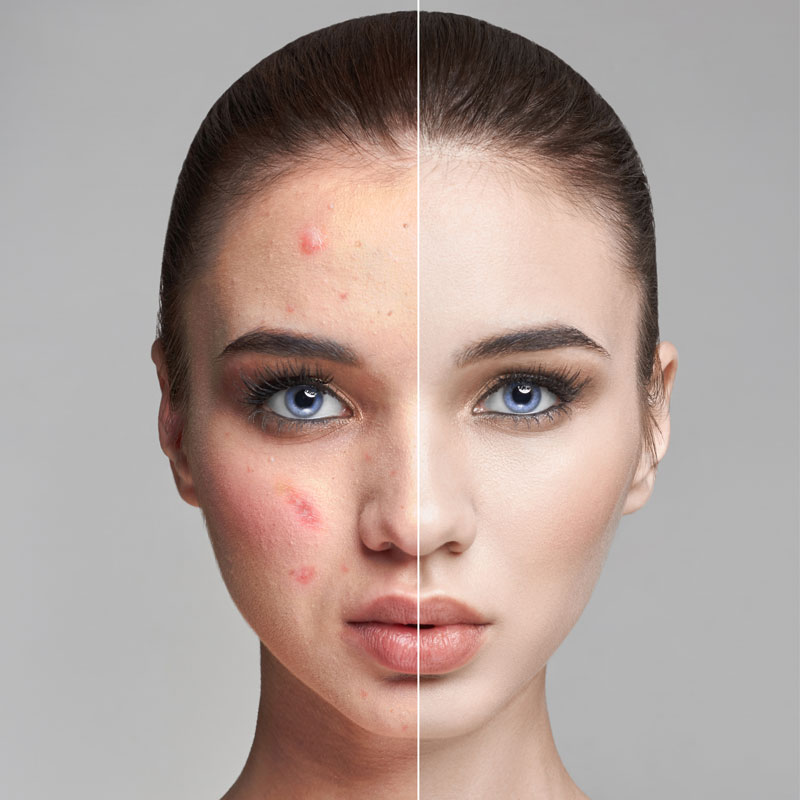1-844-551-1946
Monday – Friday 9 am – 5 pm EST
-
Acne on the cheeks can be caused by a variety of factors including hormonal changes, use of pore-clogging skincare products, environmental pollutants, high humidity, and lifestyle habits such as touching your face frequently or not cleaning makeup brushes.
-
While hygiene can play a role, cheek acne is not solely caused by poor cleanliness. It often results from a combination of factors like genetics, hormonal imbalances, and environmental triggers.
-
Yes, certain foods, especially those with high glycemic indexes like sugary snacks and dairy products, can exacerbate acne. A balanced diet rich in omega-3 fatty acids and antioxidants may help reduce its severity.
-
Over-the-counter products containing salicylic acid or benzoyl peroxide can be effective. For severe cases, professional treatments like chemical peels, laser therapy, or prescription medications may be necessary.
-
Preventative measures include using non-comedogenic skincare products, maintaining a consistent and gentle skincare routine, avoiding excessive skin touching, and keeping items that come into contact with your face (like phone screens and pillowcases) clean.
-
Yes, stress can exacerbate acne as it triggers the production of hormones that can increase oil production in the skin, leading to breakouts.
-
No, popping pimples can lead to scarring, infections, and worsen the acne. It’s best to treat them with appropriate skincare products or seek professional help.
-
While acne is more common in teenagers due to hormonal changes, it can persist into adulthood. The persistence or occurrence of acne in adulthood depends on various factors including genetics, lifestyle, and skincare habits.
-
Acne is not typically a sign of serious health issues, but it can sometimes be influenced by hormonal imbalances or conditions like polycystic ovary syndrome (PCOS).
-
Acne scars can be treated with professional treatments like laser therapy, microdermabrasion, and chemical peels. Using products with ingredients like retinoids and vitamin C can also help reduce their appearance over time.

